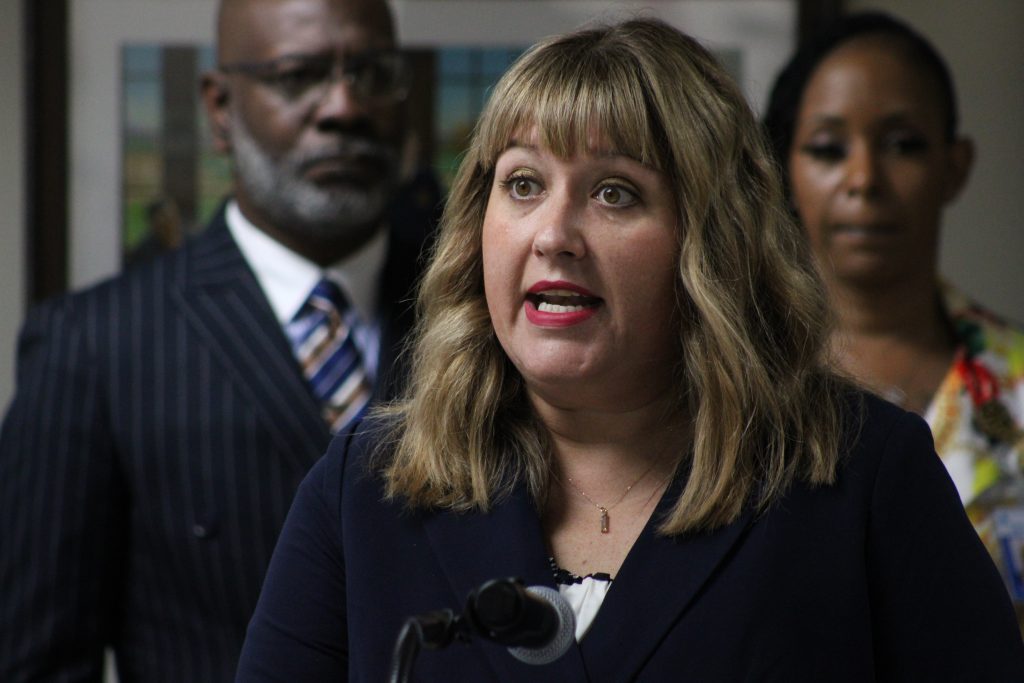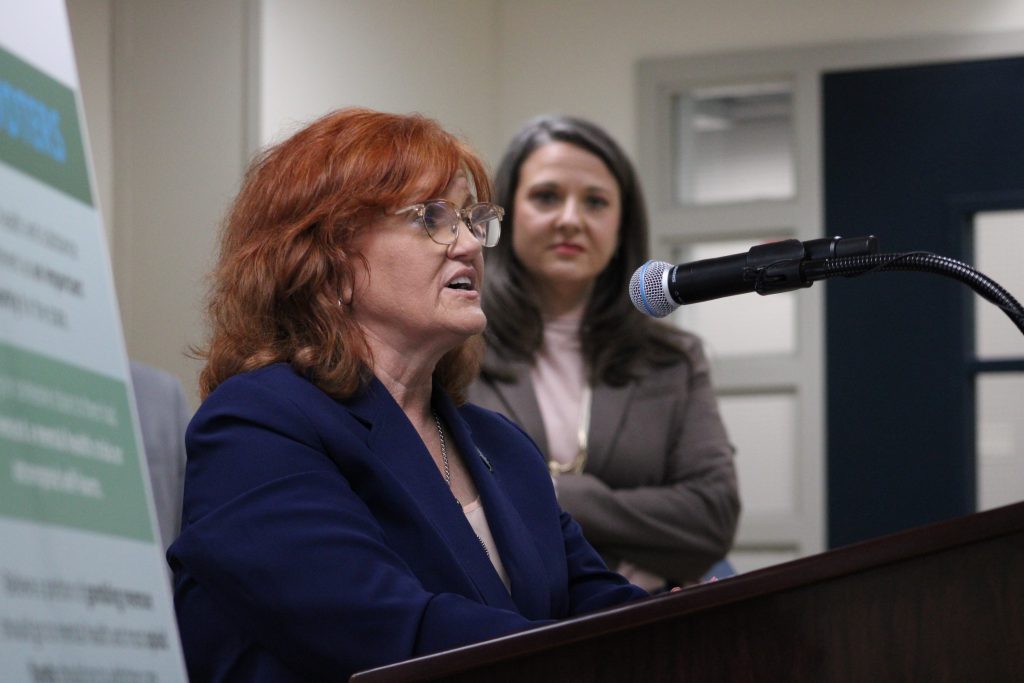MONTGOMERY, Ala. — A coalition of mental health providers this week asked Alabama lawmakers to support additional funding for mental health services, touting a new poll that found majority support among Alabama voters.
In every question included in the poll, a majority of respondents indicated they held a poor perception of both the quality and accessibility of mental health resources in the state. The solutions, argued Holly McCorkle, executive director of the Alabama Council for Behavioral Healthcare, were numerous.
Among them would be for lawmakers to institute a small surcharge on phone lines to support the 988 mental health crisis call line, an effort that fell short during the previous legislative session but is being reconsidered for this year.
Last year’s House Bill 389 would have placed a $.98 monthly fee on phone lines, generating around $69 million a year, enough to not only fully fund and expand the state’s 988 crisis hotline, but to add 30 mobile crisis teams to cover all 67 counties and construct a new crisis diversion center.
Speaking at a press conference Wednesday, McCorkle urged lawmakers to consider reintroducing the bill, even at a reduced $.50 surcharge, something the poll found a majority of Alabamians – 52.4% of respondents – said they would be in support of.
“We believe Alabamians would be even more supportive if they knew the fee would ensure some level of care in all communities,” McCorkle said.
“The bottom line is, Alabamians recognize the need for mental health and substance abuse treatment, and they clearly think access to care should be a priority for our policy makers in terms of focus and funding.”

Conducted by the polling and research firm Cygnal, the poll surveyed 620 likely general election voters in Alabama Dec. 11 and 12, 2023.
When asked what level of priority they would rank mental health care and substance abuse treatment among all types of health care, nearly 83% of respondents labeled it as “very important” to “most important,” and nearly 52% said mental health care in Alabama was worse when compared to a few years ago.
“More than nine in ten Alabamians see mental health and substance abuse treatment as a big priority, (and) 90% believe mental health and substance abuse issues are hurting our communities,” McCorkle continued.
“Close to half said that they or someone close to them had experienced a mental health crisis or attempted self harm.”
Alabama’s mental health care resources have increasingly been top of mind for public and elected officials. Health experts and law enforcement have routinely called on lawmakers to expand mental health resources. House Speaker Nathaniel Ledbetter, R-Rainsville, named expanding mental health resources as among his top legislative priorities for the upcoming session.
Today, just one-third of Alabama counties have access to a crisis center or mobile response team, with the state ranked as having the second-to-worst access to mental health care resources in the nation, with one mental health care provider for every 920 residents, far below the national rate of 350-to-1.
Molly Brooms, executive director of the Behavioral Healthcare Alliance of Alabama, said that with a $.50 cent surcharge on phone lines, the state could also grow the number of crisis centers it has in the state, which currently stands at six.
“These centers are literally life saving, and we are grateful for each of them; While 988 is available to all Alabamians, two-thirds of the counties do not have either a crisis center or a mobile crisis outreach team,” Brooms said.
McCorkle also named the anticipated $270 million in opioid settlement funds the state is set to receive over the next several years, as well as any future gambling legislation as other potential revenue sources for expanding mental health resources in the state.
On gambling, nearly 82% of poll respondents said they would support a portion of the revenue going toward mental health care and substance abuse treatment, and 82.5% said the same for opioid settlement funds.
Poll respondents also painted a bleak picture of the accessibility of mental health care services in the state, with Kelly Emerson, executive director of the Alabama chapter of the National Alliance on Mental Illness, summarizing the poll’s findings.
“Of those that reported a personal experience with a mental health crisis, 44% said they couldn’t get immediate help for themselves or their loved ones,” Emerson said. “Cost of treatment, lack of nearby treatment resources, wait times, lack of health insurance, all of these were noted as barriers to getting the help they needed when they were in crisis.”
At the press conference, Leigh Few, who has spent the past 20 years with Wings Across Alabama, a mental health organization based in Montgomery, talked about when she was a young mother and needed help. She said she wouldn’t be alive today were it not for the mental health care she received.

“I am living proof of what can happen when you get the help that you need as far as mental health is concerned, because if it was not for that mental health center, I don’t think I’d be here today,” Few said. “Investing in mental health care saves lives, and I’m here to say it saved my life and I would love to see us be able to expand all over the state because it’s needed everywhere.”

